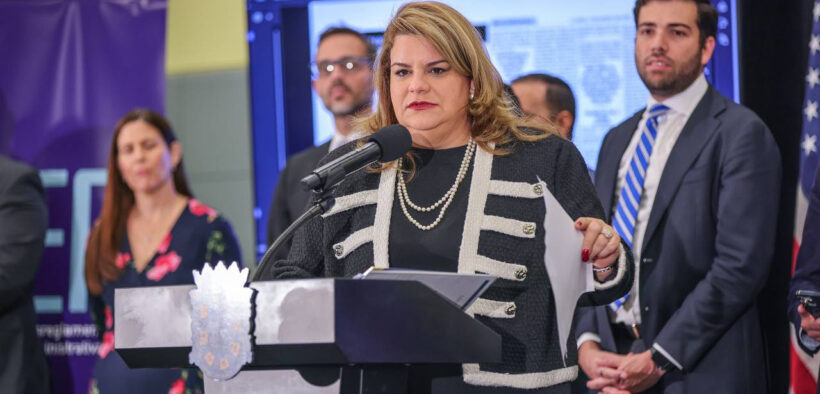Puerto Rico gov’t repeals obsolete rules to boost efficiency

Puerto Rico Gov. Jenniffer González announced the repeal of 251 outdated regulations as part of the first phase of the Deregulation and Administrative Efficiency Initiative (IDEA, in Spanish), eliminating more than 7,200 pages of provisions “that created obstacles, confusion and unnecessary requirements.”
Officials described the effort as the island’s most comprehensive government efficiency reform in decades.
“IDEA is a strategic priority of our administration that seeks to modernize the government apparatus and simplify processes, fostering efficiency, competitiveness and transparency,” González said. “With IDEA, Puerto Rico eliminates what doesn’t work, adopts responsible technologies and establishes a clear economic development agenda.”
Efficiency Coordinator Verónica Ferraiuoli-Hornedo said the initiative followed a structured, uniform process.
“Each agency created its own committee composed of legal, technological and citizen service representatives, and more than 300 public servants were trained to participate,” she said. “We have worked with discipline, data and uniform processes to ensure that each decision is justified and aimed at improving public management.”
The government reviewed 4,160 regulations registered with the Department of State, finding that 90% had not been updated in more than five years. Of these, 2,918 were classified: 807 will be repealed, 1,245 revised or consolidated and 866 kept in force. Another 1,242 regulations remain under review, including 92 from dissolved agencies that still appear active in the registry.
Examples of repealed rules
In housing, the Housing Finance Authority eliminated a 546-page regulation filled with amendments that complicated financing applications. The Health Department repealed archaic provisions, including those on leprosy and auxiliary midwives.
Health Secretary Víctor Ramos-Otero said the overhaul “ensured that current regulations respond to real needs, supported by evidence and modern science, to provide swift and effective care to our population.”
The Department of Economic Development and Commerce (DDEC, in Spanish) reported the repeal of 87 regulations, including 58 from the agency itself and 29 from the Puerto Rico Industrial Development Co. (Pridco).
DDEC Secretary Sebastián Negrón said the changes “represent a 67% reduction that marks a milestone in our commitment to making Puerto Rico a truly competitive jurisdiction for doing business.”
The Office of the Commissioner of Financial Institutions (OCIF, in Spanish) consolidated six regulations and two circular letters into new banking rules.
Commissioner Mónica Rodríguez-Valle said the update “represents a significant advance in terms of clarity, coherence and regulatory relevance” while also aligning with federal requirements.
Twelve agencies remain in the repeal process, including the Puerto Rico Fiscal Agency and Financial Advisory Authority (AAFAF, in Spanish), the Housing Finance Authority, Pridco, the DDEC, the Department of Education and OCIF.
This first phase reduced the average age of regulations from 22 to 16 years and lowered the percentage of rules unreviewed for more than five years from 90% to 54%, government officials said.
The government is also preparing Puerto Rico’s first artificial intelligence policy, to be enforced by the Puerto Rico Innovation and Technology Service (PRITS).
PRITS Executive Director Martín Jiménez said the policy will ensure “ethical, safe and transparent use” of AI in public services, with governance structures, data protection and human oversight requirements.
Established through executive orders earlier this year, IDEA is guided by six principles: citizen first, administrative efficiency, smart deregulation, unified government, digitalization and regional competitiveness.
González said the initiative “opens a new phase in administration, leaving behind decades of bureaucracy and projecting a state apparatus that is agile, efficient and aligned with the needs of its people.”












